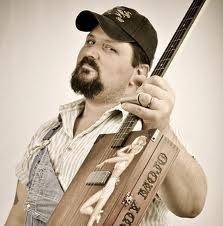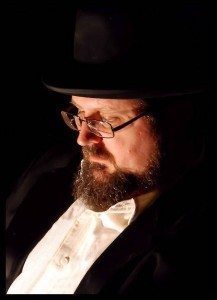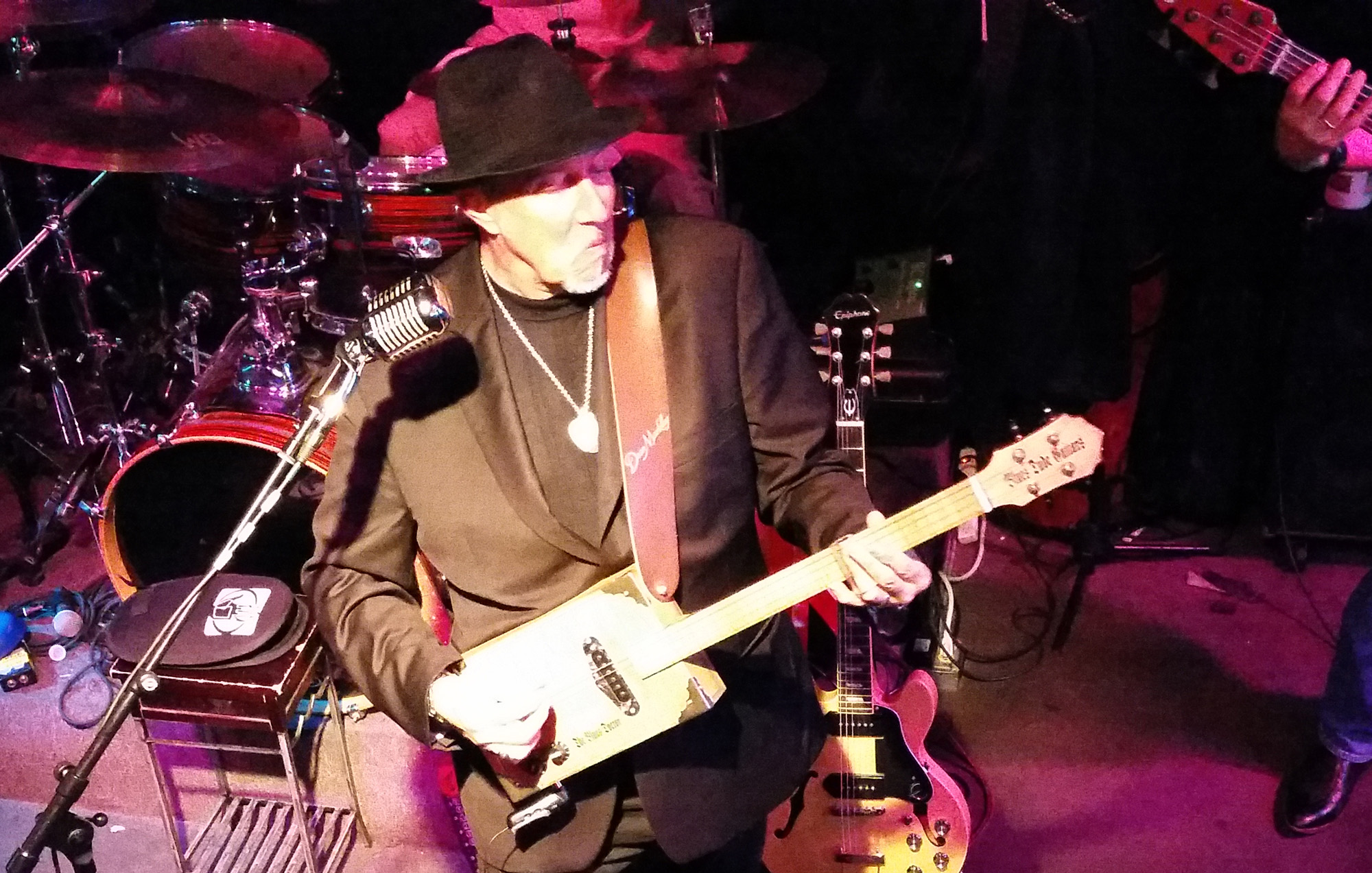 This post recounts my own experience with one particular facet of United States trademark law, and recounts some of the legal advice provided to me through paid consultation with a Trademark attorney. This is NOT meant to be legal advice, and is not meant to condone or recommend any particular course of action. If you are facing your own questions of trademark infringement and legality, you need to get your own professional legal advice about your situation.
This post recounts my own experience with one particular facet of United States trademark law, and recounts some of the legal advice provided to me through paid consultation with a Trademark attorney. This is NOT meant to be legal advice, and is not meant to condone or recommend any particular course of action. If you are facing your own questions of trademark infringement and legality, you need to get your own professional legal advice about your situation.
As far as I know, all of this only comes into play if you decide to sell a product – if you are just making something for personal/non-commercial use, then (in my opinion) you don’t have much to worry about.
Late last month I received a certified letter from a lawyer representing the Jack Daniels company. It was a Cease and Desist notice, in which they were asking that we stop building, selling and marketing one of our “advertising tin guitars” that featured a 12-inch round painted “Old No. 7 Brand” design, which is one of Jack Daniels’ famous registered trademarked brands.
They claimed that by doing so, we were infringing their trademark, diluting their brand and potentially confusing customers into believing that Jack Daniels had produced or licensed this guitar.
My initial reaction was to be incredulous – this was just another big corporation trying to strong-arm and scare a little guy into compliance. These were fully licensed reproduction tin signs that I had purchased from an authorized reseller. How could they decree what that sign could or could not be used for after purchase? I had not agreed to any sort of license or terms of use when I bought it. My belief was that repurposing an item like this was covered under the Fair Use doctrine, or was at least in a solidly gray area, and that doing so was a legal activity.
Turns out, I was wrong. Here is what I learned:
First, I learned that Trademarks are different from Copyrights. Trademarks are created purely to protect commercial brands, whereas copyrights protect creative works like books, articles, photographs, artwork, etc. As such, the case law for trademarks was in some ways different, and more restrictive, for trademarks.
Second, I learned that the Fair Use Doctrine applies primarily to Copyrights, not really to trademarks. You can read more about the Fair Use Doctrine in detail here: Wikipedia Fair Use entry. Basically, it says that portions of works or entire works can be reused and reproduced under certain circumstances (educational, parody, etc), even if they are copyrighted, with out permission from (or royalties being due to) the creator.
Third, I learned that the other portion of trademark law at work in this particular case is the First Sale Doctrine. There is a great article explaining this that you can read here (I highly recommend this one). Basically, this is the part of trademark law that allows you to resell genuine trademarked goods (be it a Tiffany lamp, a Coach handbag or a Jack Daniels tin sign) as what they are. It states that once the original trademark owner releases their product into the marketplace, they lose the right to control its distribution and/or prevent its resale. At first this sounds good for the case in question… but there’s a “but”… see below.
Fourth, I learned that the First Sale doctrine limits its protection to reselling the item in question IN ITS ORIGINAL UNCHANGED FORM. From the article: “That limitation protects against confusing consumers into believing a “materially” changed good was made by the trademark owner. If a good is modified, it can’t be sold bearing the original trademark.”
Learning this about the limitations of the First Sale doctrine was pretty much the death knell for my claims in regards to the Jack Daniels tin guitars, and I had no choice but to comply with their cease and desist order and stop building and selling the guitar.
But what really worried me was the bigger question was that if Jack Daniels could claim this about their tin signs, what would stop a cigar company from claiming it about their cigar boxes being made into guitars, or oil companies from claiming it about their oil cans being made into canjos? In short, was this cease and desist letter calling the whole cigar box guitar/homemade music movement into question?
To answer this, we get into a much more gray area of the law. The key point in regards to the JD tin was that it was a licensed reproduction being sold to be used for decorative purposes – that was how Jack Daniels had licensed it to the sign-making manufacturers. By taking that branded tin and using it in another way, and then attempting to sell that new product under another brand name, their trademark rights were being infringed. According to my attorney, established case law firmly supports that point and the chances of winning a case would have been very small.
However, when it comes to repurposing/upcycling branded items which have already been “used up? for their intended purpose (like holding cigars), and after being used up are basically garbage (think cigar boxes, oil cans, cookie tins, wine boxes, beer cans, etc), the law is much less clear. According to my attorney, there has not really been a case in the courts which has considered this question – so it remains a “gray area” of trademark law. So for now, all of us who build and sell cigar box guitars and other such items operate in this gray area.
So far, to my knowledge none of the cigar manufacturers have attempted to crack down on CBG builders, or beer companies on canjo builders… but the day may come. As the repurposing/upcycling movement has gained steam, and more and more people are building and attempting to sell their creations, the big companies are more and more likely to notice that that money is being made off of their brands, and take action. Inevitably there will be a court case that considers the question, and the results of that case will affect all of us who build and sell CBGs.
Of course some of you might already be thinking of examples of more or less gray areas – what if scenarios, what-about-this-or-that questions, etc. All I can say is… it’s called a gray area for a reason. Some of these companies (think Jack Daniels, Harley-Davidson, Coke, Disney, etc) have HUGE merchandise marketing and licensing agreements. They make a LOT of money off of their trademarked brands being put on all sort of products… companies like this are likely to be a lot more protective in regards to people using those trademarked brands in ways they haven’t licensed. Whereas cigar companies focus primarily on selling cigars, and there is a long history of the empty boxes being used for all sorts of purposes… we can hope that there is an inherent benevolence or tolerance there that will keep them from going after anyone.
So my attorney’s advice to me was to stop all use of trademarked, licensed stuff (like the JD tins) that I was buying new from resellers for use in building musical instruments for resale, but that it was reasonably safe to continue using cigar boxes, oil cans, beer cans and the like that could be considered repurposed/upcycled “trash” items… until such time as the question is settled in court.
For my part, you can bet I’ll be keeping a close eye on any developments in this area, as it affects the very core of my business. As one of the most widely marketed and visible companies operating in this realm, there is a decent chance that if a cigar box related Cease and Desist ever does show up, it will be at my door. If that ever happens, I will throw everything I have into fighting it in the courts, on my own behalf and on behalf of the entire movement. I firmly believe that our particular form of repurposing and upcycling “trash” into new products is, and should be, protected under the First Sale/Exhaustion doctrine of U. S. trademark law.


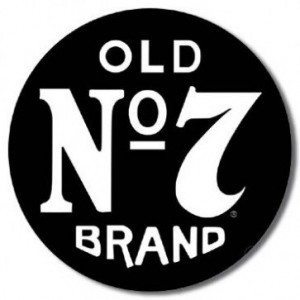
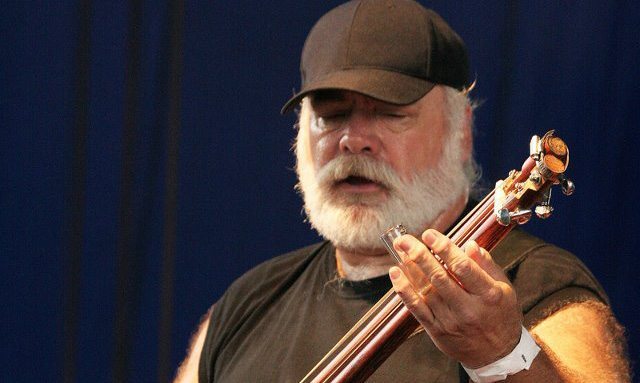
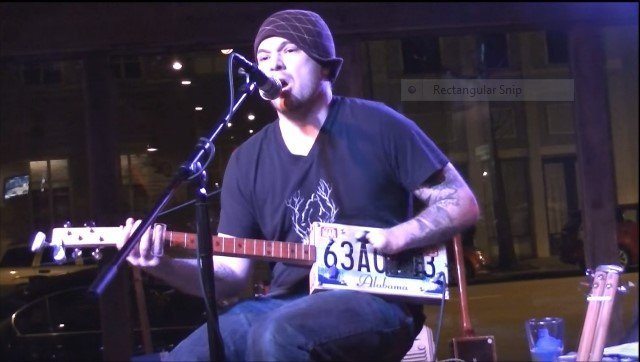
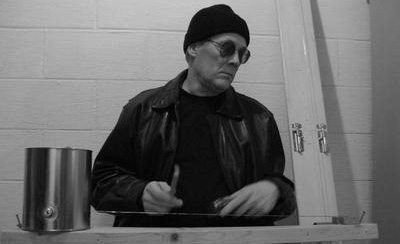

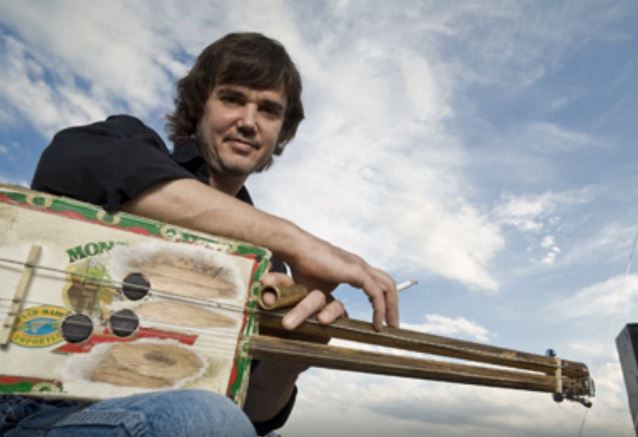


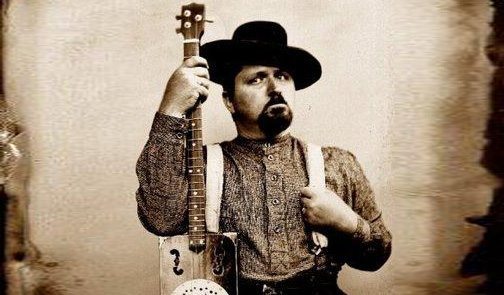
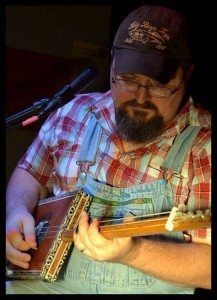 A man hunches forward, growling into the microphone. Sweat from impassioned performing rolls down his forehead and soaks his shirt but does nothing to stop his growing momentum.
A man hunches forward, growling into the microphone. Sweat from impassioned performing rolls down his forehead and soaks his shirt but does nothing to stop his growing momentum.